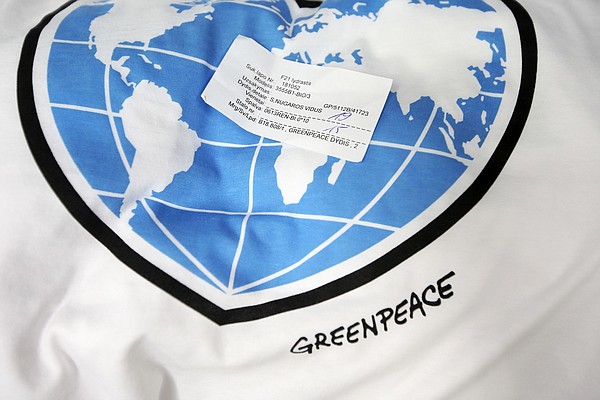MANUFACTURING
Greenpeace Names Lithuanian Mill As A Sustainability Standard Bearer
The influential environmental group Greenpeace challenged the apparel industry in 2011 to eliminate hazardous chemicals from its manufacturing and supply chain by 2020, and on Feb. 24 Greenpeace formally recognized a Lithuanian company as the only mill in the world that adheres entirely to Greenpeace’s textile-procurement rules.
The mill, Utenos trikotažas, based in Utena, Lithuania, will be making the organization’s T-shirts and has already wrapped up a run of T-shirts for Greenpeace, said Viola Wohlgemuth, Greenpeace’s consumption and toxics campaigner.
“It is the standard for any fashion brand really looking to achieve credibility in terms of sustainability. Utenos trikotažas has become the first manufacturer to prove it is compliant with these requirements. Under the standard, organically farmed natural fibers, production tested free of harmful substances, fair pay and transparency are uniquely combined,” Wohlgemuth said in a statement. She added that the Lithuanian mill proved that large operations can produce apparel that adheres to high sustainability standards.
In 2017, the Lithuanian textile manufacturer joined Greenpeace’s Detox campaign to phase out harmful chemicals. According to media reports, about 80 prominent companies joined Greenpeace’s Detox campaign, including H&M Hennes & Mauritz, Nike Inc. and Levi Strauss & Co.
Greenpeace’s standards include transparency in the manufacturing supply chain along with verification by certifying groups of raw or untreated wastewater discharges, as well as the company’s final products.






















